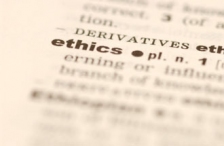 Ethics is what makes and keeps life human. As the headlines remind us, however, we do not always take the time to consciously consider our choices about how we could and should behave. Living an ethical life is like practicing an instrument; it takes practice.
Ethics is what makes and keeps life human. As the headlines remind us, however, we do not always take the time to consciously consider our choices about how we could and should behave. Living an ethical life is like practicing an instrument; it takes practice.
In a timely article in The New York Times, Howard Gardner, professor of Cognition and Education at the Harvard Graduate School of Education, takes a hard look at the ethical disarray in America where traditional morality has broken down and professionals of all stripes no longer feel the need to serve the common good.
He points out that many lawyers aren't concerned with the health of the community but only with the wealth and well-being of their corporate clients. He laments that politicians prioritize the demands of their donors and special interest groups over the public's while doctors pay allegiance to pharmaceutical companies or health maintenance organizations.
